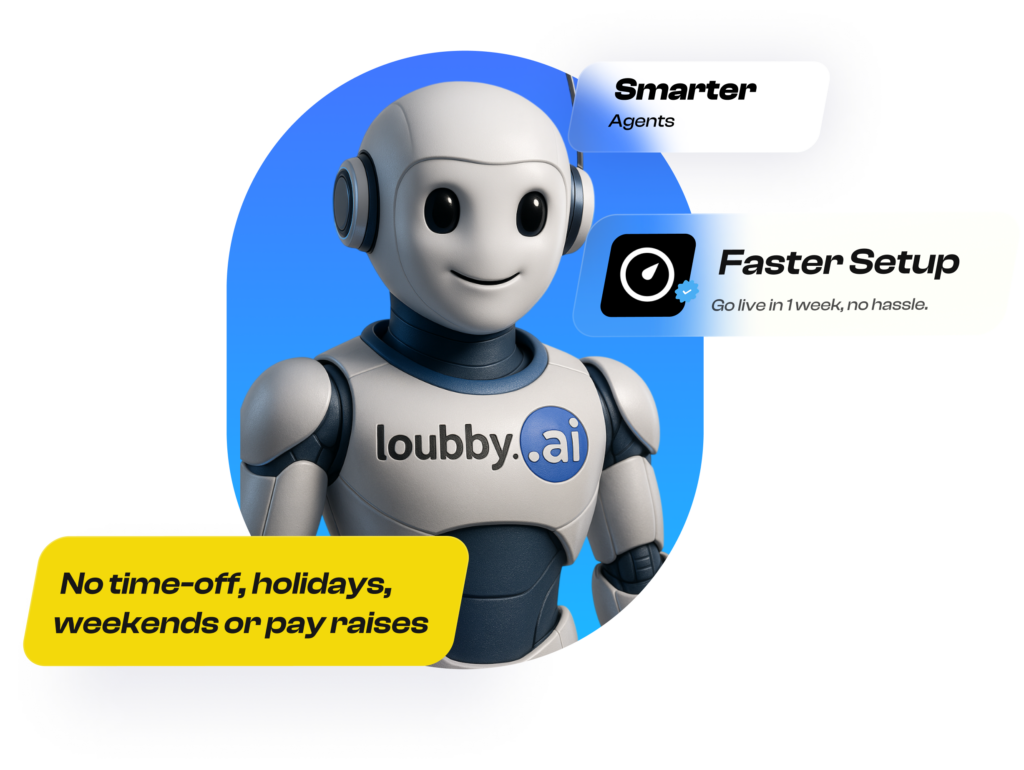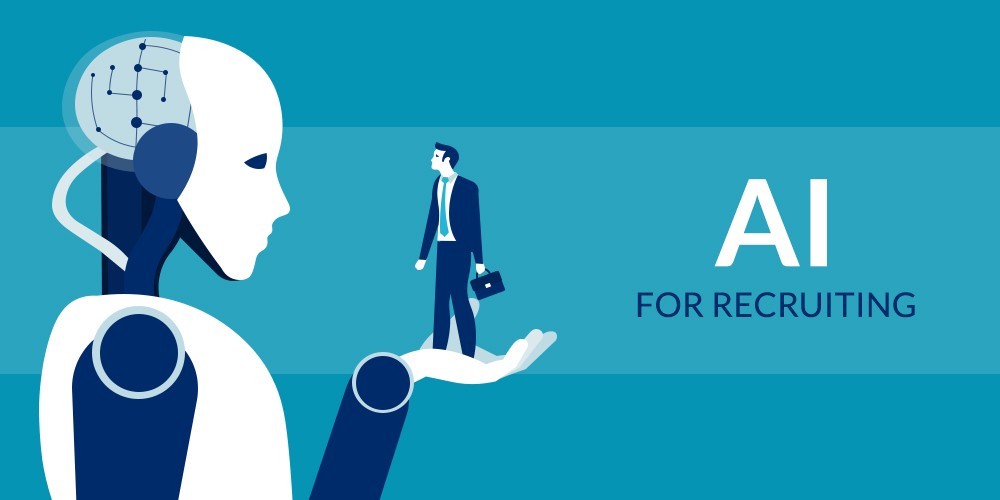There are many benefits to using AI in recruitment processes. Companies and businesses today are under a lot of pressure to attract, hire, and retain the best talents. The traditional recruitment process, however, makes it more challenging to achieve these goals. This is where Artificial Intelligence (AI) comes in.
With AI, companies can automate mundane tasks, derive data-driven insights, and improve the overall candidate experience. In this article, we explore the benefits of AI in recruitment processes, focusing on actionable strategies that allow for maximum return on investment (ROI) for businesses and companies.
The Role of AI in Modern Recruitment
Artificial intelligence is reshaping every industry, and the Human Resources space is no exception. For recruitment processes, companies can now leverage machine learning, data analytics, and natural language processing (NLP) to improve the many stages involved in the hiring process. By using AI to automate repetitive tasks such as resume screening, interview scheduling, and candidate follow-up, companies can reduce time-to-hire, lower recruitment costs, and increase the quality of candidates hired.
In the traditional recruitment process, human biases, inconsistencies, and time constraints often result in suboptimal hiring decisions. One of the many benefits of AI in recruitment processes is that recruiters can make better data-driven decisions, helping companies minimize these errors.
AI-powered platforms like Loubby, for instance, can analyze large amounts of candidate data to predict the probability of success in a specific role, helping companies make faster, more informed decisions. Consequently, the hiring team can focus on high-value tasks, such as building relationships with top candidates, rather than getting tied up in the mundane.
Improving Talent Matching with AI
One of the most significant challenges in recruitment is matching the right talent with the right roles. AI-powered tools like Loubby excel at this by using sophisticated algorithms to analyze large volumes of candidate data and job requirements. These tools go beyond just keyword matching on resumes—they consider multiple factors such as skills, experience, personality traits, and even cultural fit. The result? More accurate and personalized candidate recommendations that improve the likelihood of hiring long-term, high-performing employees.
Let’s take an example: A company is looking to hire a software engineer with specific technical skills but also someone who thrives in a collaborative, fast-paced work environment. Traditional methods may involve manually sifting through hundreds of resumes, a time-consuming and often ineffective process. With AI, platforms like Loubby can scan resumes, portfolios, and past work experiences in minutes, automatically filtering out candidates who don’t meet the necessary technical or soft skills.
In fact, AI goes a step further by using predictive analytics to identify candidates who have succeeded in similar roles. These insights allow recruiters to go beyond surface-level assessments, ensuring a higher match between the company’s needs and the candidate’s potential. This ultimately reduces turnover rates and saves the company money in the long run.
The ROI Impact:
Accurate talent matching speeds up the hiring process and has a direct impact on ROI. By hiring candidates who are better suited to the role and company culture, businesses see higher employee retention, better job performance, and a reduction in the costly process of replacing employees.
Streamlining HR Workflows with Automation
Beyond talent matching, AI’s ability to automate HR workflows is another key factor in maximizing ROI. From posting job ads to managing applicant tracking systems (ATS), AI can handle repetitive administrative tasks, allowing HR professionals to focus on more strategic initiatives. Platforms like Loubby integrate seamlessly with existing HR systems, enabling recruiters to automate:
- Resume Screening: AI can quickly sift through thousands of resumes, identifying the most qualified candidates based on predefined criteria. What might take a human recruiter hours or even days, AI can accomplish in minutes.
- Interview Scheduling: Coordinating interviews often requires multiple back-and-forth communications. AI-driven tools can automate this process by offering available time slots to both candidates and interviewers, syncing schedules, and confirming appointments—all without human intervention.
- Candidate Follow-up: Recruiters can easily lose track of candidates, especially during periods of high hiring volume. AI chatbots and automated email sequences ensure that candidates receive timely updates on their application status, helping maintain engagement throughout the process.
- Onboarding: Once a candidate is hired, AI tools can also assist with onboarding by automating the delivery of necessary documents, training materials, and other administrative tasks.
The ROI Impact:
Streamlining these tasks doesn’t just save time—it also results in significant cost savings. According to industry estimates, the average cost-per-hire can be reduced by up to 40% with AI automation. Additionally, reducing the time-to-hire ensures that businesses don’t miss out on top talent, further improving their ROI.
How AI Improves Candidate Experience
While much of the focus in recruitment is on the employer’s perspective, the candidate’s experience is equally important. A poor experience during the hiring process can lead to negative employer branding, deterring future applicants and damaging a company’s reputation. AI can dramatically improve the candidate experience by providing more consistent and personalized communication.
For example, AI chatbots can handle initial candidate inquiries, provide real-time updates, and guide candidates through the application process. By answering frequently asked questions and offering personalized recommendations, chatbots ensure that candidates feel supported and engaged.
AI can also provide tailored feedback to candidates who aren’t selected for a role, helping them improve their chances for future opportunities. Instead of receiving a generic rejection email, candidates might receive an AI-generated message that highlights areas for improvement or even suggests other roles within the company that may be a better fit.
The ROI Impact:
Improving the candidate experience has far-reaching effects on ROI. Happy candidates—whether hired or not—are more likely to recommend your company to others, increasing the number of high-quality applicants. Positive candidate experiences also contribute to a stronger employer brand, making it easier and less costly to attract top talent in the future.
Maximizing ROI Through AI in Recruitment
The true value of AI in recruitment becomes clear when examining its impact on ROI. Traditional recruitment processes often involve substantial costs in terms of both time and money. For example, the cost of a bad hire can range from 30% to 150% of that employee’s annual salary, depending on the role. AI-driven recruitment reduces the likelihood of making poor hiring decisions by improving accuracy at every stage of the process.
Here are some specific ways AI maximizes ROI:
- Faster Hiring: Using AI in recruitment processes shortens the recruitment cycle by automating time-consuming tasks, enabling businesses to fill roles more quickly. This is especially critical for high-growth companies or industries with high turnover rates.
- Reduced Hiring Costs: By automating processes and improving talent matching, AI helps companies reduce the cost-per-hire. This includes savings from fewer advertising costs, reduced reliance on third-party recruitment agencies, and less time spent on manual processes.
- Improved Retention: As previously mentioned, AI improves the accuracy of talent matching, ensuring that hires are more likely to succeed in their roles. Higher retention rates mean fewer resources spent on rehiring and retraining, which translates to long-term cost savings.
- Data-Driven Insights: AI platforms like Loubby offer actionable data that HR teams can use to refine their recruitment strategies. From analyzing the effectiveness of job postings to identifying obstacles in the hiring process, AI allows for continuous optimization, which further improves ROI over time.
Case Study: Loubby AI in Action
To illustrate the tangible benefits of AI in recruitment, let’s consider a hypothetical case study involving a mid-sized tech company, Techify, that implemented Loubby’s AI-driven recruitment platform.
Before adopting Loubby, Techify struggled with a slow hiring process and high turnover, particularly in technical roles. The HR team spent weeks manually screening resumes, and interviews were often delayed due to scheduling conflicts. Moreover, many of the hires weren’t a good fit, leading to increased costs associated with rehiring.
After implementing Loubby, Techify saw the following improvements:
- Time-to-hire was reduced by 35%, allowing the company to fill critical roles faster and remain competitive in a tight labor market.
- Turnover rates decreased by 20% as AI-driven talent matching ensured better alignment between candidates and the company’s needs.
- Cost-per-hire dropped by 25%, thanks to automation and reduced reliance on external recruitment agencies.
These results demonstrate the direct impact AI can have on both the efficiency of recruitment processes and overall business performance.
Future Trends in AI and Recruitment
As AI continues to evolve, its role in recruitment will only grow. Future trends include the rise of predictive analytics, which can forecast a company’s hiring needs and identify potential talent gaps in advance. AI is also playing an important role in promoting diversity and inclusion by removing unconscious biases from the hiring process.
For example, AI tools can anonymize resumes, ensuring that recruiters focus solely on skills and qualifications rather than factors such as gender, age, or ethnicity. By making the hiring process more inclusive, companies can build more diverse teams, which has been proven to boost innovation and business performance.
Conclusion
Adopting AI in recruitment is no longer a futuristic concept—it’s a reality that forward-thinking companies have started adopting. AI-driven platforms like Loubby improve talent matching, streamline HR workflows, and enhance the candidate experience. All of these directly contribute to helping companies maximize their ROI. Companies that embrace AI in their recruitment processes are better positioned to attract top talents and build stronger teams.







